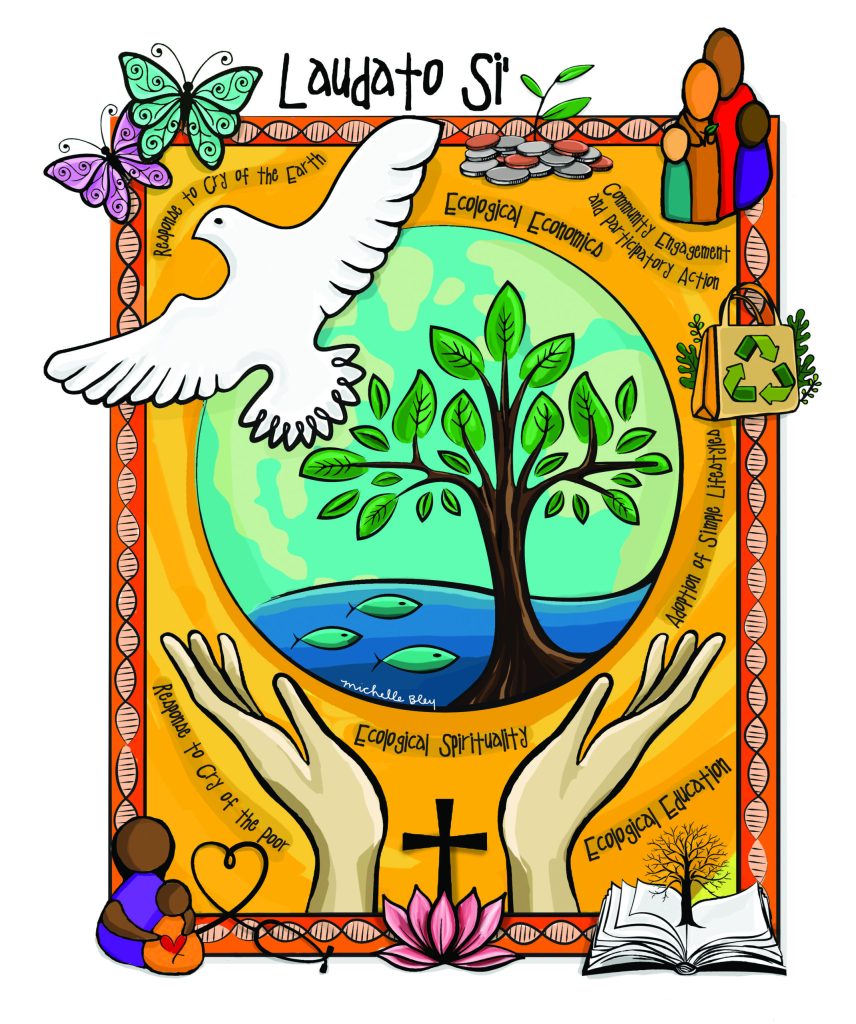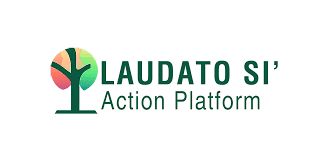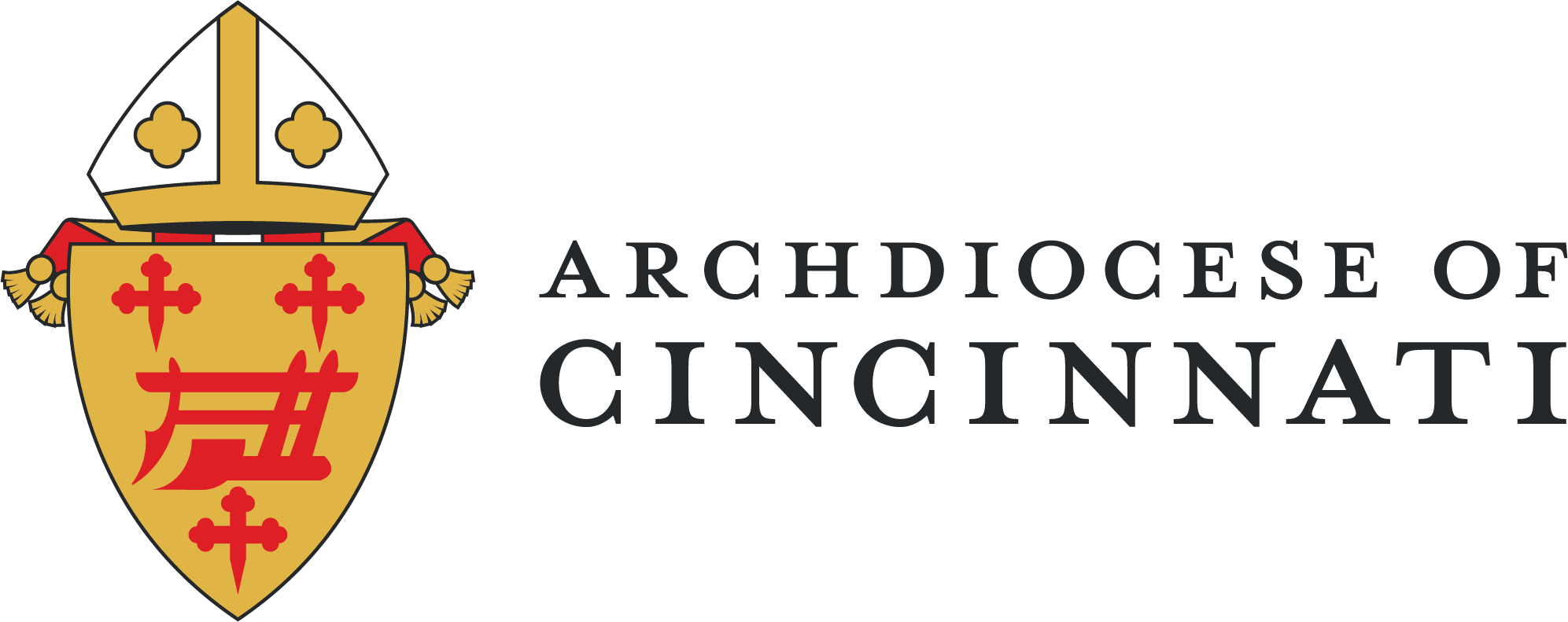Home > Offices > Catholic Social Action > Catholic Social Teaching > Care For Creation > Laudato Si Action Platform
Laudato Si Action Platform
Caring for God’s Creation
Pray, Learn, Connect, and Enact Together the Laudato Si’ Action Platform

On Saturday, March 4, 2023, people of all ages from across the Archdiocese came together to pray; to grow in fellowship; to learn about the Laudato Si’ Action Platform; and to act together to support our parishes, schools, homes, and congregations to care for God’s creation.
Over 190 folks* gathered at the the University of Dayton’s Curran Place for a powerful conference that included keynotes on the faith and science rationale for this work, examples of great work already in progress, a student panel, and breakouts where people from the same sectors could connect. (The full program is linked below.)
We hope that this conference was the next step in mobilizing our Archdiocesan community to act on the morals set forth by Laudato Si’ and engage with the LSAP. Whether you attended the conference or not, we warmly invite you to join us.
Praise be to God!
(*Folks included individuals; families; ministers in families of parishes; Catholic school students, teachers, and staff; nonprofit staff and leaders; vowed religious; and all roles in the Archdiocese not previously listed.)
Click here to view the flyer.
Click here for an outline of the schedule.
Laudato Si’ illustration by Michelle Bley, graphic designer, Sisters of Charity of Cincinnati.

Caring for our brothers and sisters means caring for the home we share. This responsibility is “essential to a life of virtue” (LS 217).
The Dicastery for Promoting Integral Human Development’s Laudato Si’ Action Platform (LSAP) is a space for institutions, communities, and families to learn and grow together as we journey towards full sustainability in the holistic spirit of integral ecology. You are warmly invited to join this community. Your unique “culture, experience, involvements, and talents” are needed on our journey towards greater love for our Creator, each other, and the home we share. (LS 14)
The Archdiocese of Cincinnati has formally joined the LSAP and is working across sectors to support efforts to implement the goals established (see below). The work is led by the Care for Creation Task Force, but these important efforts will only be successful if we get individuals, families of parishes, religious orders, non-profits, schools, universities, and businesses to join the fight. Our hope is connect people within each sector, provide resources, empower them to share best practices, and challenge them to vision ways to work together for greater impact.
Recording of our Zoom session introducing the Laudato Si Action Platform to the Archdiocese.
Laudato Si' Action Plan goals
The Response to the Cry of the Earth is a call to protect our common home for the wellbeing of all, as we equitably address the climate crisis, biodiversity loss, and ecological sustainability. Actions could include the adoption of renewable energies and energy sufficiency measures, achieving carbon neutrality, protecting biodiversity, promoting sustainable agriculture, and guaranteeing access to clean water for all.
The Response to the Cry of the Poor is a call to promote eco-justice, aware that we are called to defend human life from conception to death, and all forms of life on Earth. Actions could include projects to promote solidarity, with special attention given to vulnerable groups such as indigenous communities, refugees, migrants, and children at risk, analysis and improvement of social systems, and social service programs.
Ecological Economics acknowledges that the economy is a sub-system of human society, which itself is embedded within the biosphere–our common home. Actions could include sustainable production and consumption, ethical investments, divestment from fossil fuels and any activity harmful to the planet and the people, supporting circular economies, and prioritizing care labor and protecting the dignity of workers.
The Adoption of Sustainable Lifestyles is grounded in the idea of sufficiency, and promoting sobriety in the use of resources and energy. Actions could include reducing waste and recycling, adopting sustainable dietary habits (opting for a more plant-based diet and reducing meat consumption), greater use of public transport, active mobility (walking, cycling), and avoiding single use items (e.g. plastic, etc.).
Ecological Education is about re-thinking and re-designing curricular and institutional reform in the spirit of integral ecology in order to foster ecological awareness and transformative action. Actions could include ensuring equitable access to education for all and promoting human rights, fostering Laudato Si’ themes within the community, encouraging ecological leadership (students, teachers), and ecological restoration activities.
Ecological Spirituality springs from a profound ecological conversion and helps us to “discover God in all things”, both in the beauty of creation and in the sighs of the sick and the groans of the afflicted, aware that the life of the spirit is not dissociated from worldly realities. Actions could include promoting creation-based liturgical celebrations, developing ecological catechesis, retreats and formation programs, etc.
Community resilience and empowerment envisage a synodal journey of community engagement and participatory action at various levels. Actions could include promoting advocacy and developing people’s campaigns, encouraging rootedness and a sense of belonging in local communities and neighborhood ecosystems.

